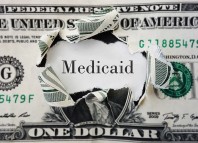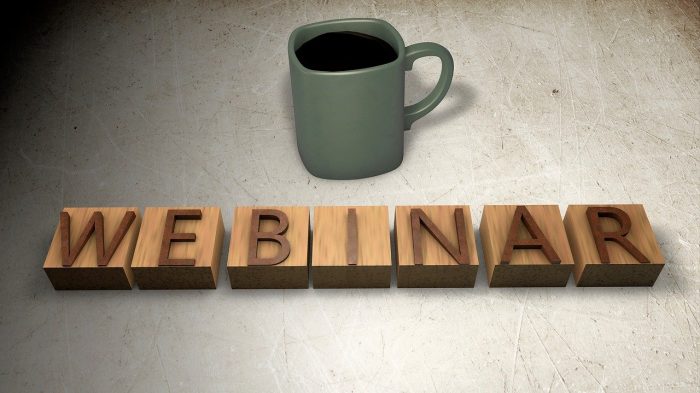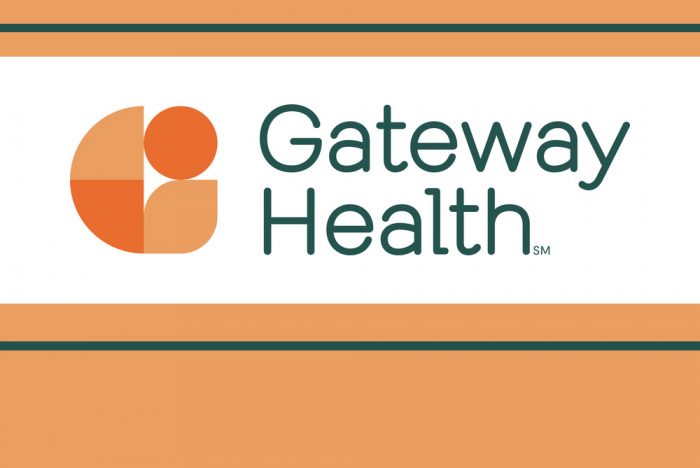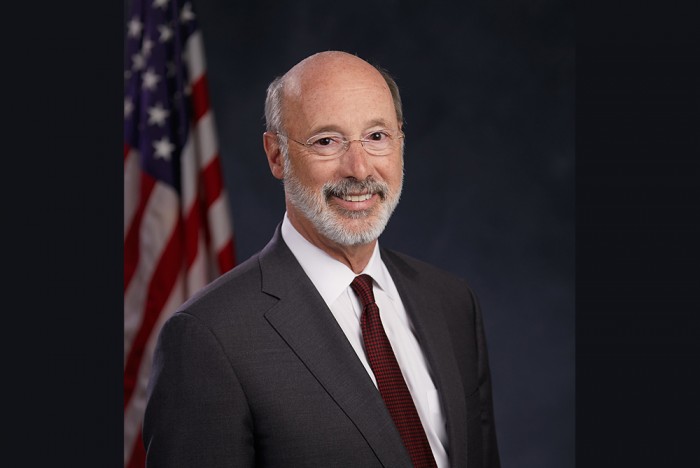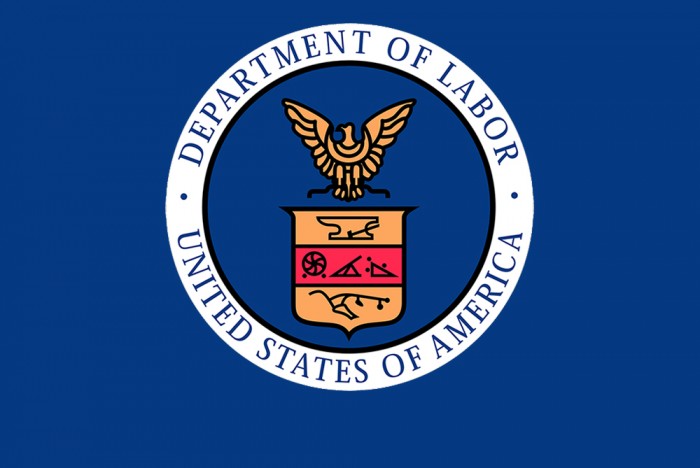Brown & Brown Insurance Webinar: Workers’ Compensation 101 for Managers and Supervisors
OptumInsight and Change Healthcare Combine to Advance a More Modern, Information and Technology-Enabled Health Care Platform

COVID-19 Adapted and Accessible Resources
Georgia Tech has created many adapted and accessible versions of the Centers for Disease Control and Prevention’s (CDC’s) COVID-19 guidance resources. These resources are organized by accessibility type, including:
- Braille
- Accessible Word Documents and PDFs
- American Sign Language (ASL) Resources (Coming Soon!)
- Simplified Text
Gateway Health and Bridges Health Partners LLC Announce Accountable Care Organization Partnership
PA Budget Would Increase Funding for Human Services, Addressing Public Health Emergencies
RCPA Statement Regarding Governor Wolf’s 2021 Budget Address
Additional Information Regarding Governor Wolf 2021 Budget and Legislative Agenda
Below please find some additional background about the Governor’s 2021 – 2022 Budget and Legislative Policy Agenda, which he will roll out tomorrow. Governor Wolf knows that Pennsylvania families are facing too many barriers such as an unfair tax system and an education system that is unequal and underfunded. Governor Wolf wants to make it easier for people to succeed in our commonwealth, and his plan will cut taxes for working families and businesses while investing more money in education and workforce development. This agenda is good for working families, good for businesses, and good for our economy. As always, we appreciate your feedback and support and look forward to working with you and the legislature to enact the Governor’s budget proposal. Thank you.
Governor Wolf 2021 Budget and Legislative Agenda
Reaffirming Our Commitment to Build the Strongest Education System in the Country
- The greatest barrier for many families is access to education.
- Early in Governor Wolf’s administration, elected officials worked together to implement a fair funding formula to make sure that education funding was distributed equitably across the commonwealth, but this applied only to new funding.
- Currently, only 11 percent of state funds flow through the fair funding formula as it only applies to new dollars appropriated.
- The governor is proposing that 100 percent of state dollars flow through the fair funding formula, a historic investment in education.
- Since the beginning of his administration, Governor Wolf has prioritized strengthening Pennsylvania’s educational opportunities because education can positively influence nearly every other part of society. From creating a strong workforce to reducing crime, Governor Wolf’s investments in education at all ages have helped propel Pennsylvania to a more prosperous future.
- The innovative PAsmart program has brought new science, technology, engineering, and mathematics (STEM) and computer science programs into thousands of schools across Pennsylvania, helping advance Pennsylvania to fifth in the nation for the number of STEM graduates.
- Governor Wolf has sought to bridge the gap between the classroom and employment by supporting career and technical education and building a new apprenticeship program. Under Governor Wolf, the number of career and technical education students earning industry-recognized credentials has increased by 30 percent while the number of registered apprentices has risen to over 18,000.
- During the past five years, Governor Wolf has secured an additional $1.4 billion in funding for pre-k through college, including nearly $800 million for basic education, $140 million for special education, and $40 million for career and technical education.
- While this has helped repair the damage done by education cuts under previous administrations, it is not nearly enough.
- The governor’s plan more than doubles this investment in education and builds on his successful education and workforce development programs, further extending high-quality education to more Pennsylvanians.
Put all Basic Education Funding through the Fair Funding Formula
- The governor is proposing a more than $1.3 billion investment in basic education funding.
- This investment directs all existing state-level basic education funding through the fair funding formula and includes a $1.15 billion adjustment so that no school district is negatively affected.
- An additional $200 million investment in basic education funding is proposed to allow all districts to continue to invest in student achievement. These dollars will be run through the fair funding formula.
- This investment enables all school districts to have the basic resources they need to provide a high-quality education for Pennsylvania students.
- The fair funding formula directs state money to school districts based on many factors, including student enrollment and needs and the ability of their community to fund local schools.
- The fair funding formula only applies to increased funding since 2016. Putting all state funding through the formula will ensure that students in every community have the funding to succeed.
Stabilizing Child Care and Ensuring Equal Access for Families
- In Pennsylvania’s subsidized child care program, Child Care Works, reimbursements have not been meeting the rising cost to operate child care as a business. Additionally, the strain of the pandemic has put added pressure on these critical providers.
- In order to support child care access and affordability for low-income working families, the administration is increasing payment rates for subsidized child care to keep pace with rates for private-pay families and ensure equal access to child care for all Pennsylvanians as of March 2021.
- The governor’s plan includes $87.17 million in additional federal funds to support these increased Child Care Works base rates and create a more stable business environment for child care facilities while improving equal access to child care services.
Increase Special Education, Head Start, and Pre-K Funding
- In addition to the increase in basic education funding, there is a $200 million increase in the special education funding formula.
- The increase in special education funding ensures that school districts have the basic resources they need to provide high-quality special education services to students with disabilities and special needs.
- Children who learn in high-quality pre-k programs perform better in school and are more likely to graduate and earn more throughout their lives compared to peers without access to early learning programs.
- The governor is proposing $25 million for Pre-K Counts and $5 million for the Head Start Supplemental Program.
- This new funding will allow approximately 3,270 additional children to enroll in the state’s high-quality early learning programs.
- During Governor Wolf’s term, the commonwealth has doubled its investment in early child education, but more children need this once-in-a-lifetime opportunity to enter kindergarten ready to grow and thrive.
Introduce Accountability into the EITC and OSTC
- The Education Improvement Tax Credit (EITC) and Opportunity Scholarship Tax Credit (OSTC) are popular programs that provide financial assistance to children in K–12 private schools.
- The governor’s plan lowers the maximum administrative set-aside for scholarship organizations participating in these programs from 20 percent to 5 percent, which will increase the amount of money available for scholarships by up to $36 million without increasing costs for taxpayers.
- Scholarship organizations will be required to report more information on the students and families who receive scholarships and their educational outcomes so that scholarships can be directed to students with the greatest need and so that all students choosing to take advantage of these programs can receive a high-quality education.
Nellie Bly College Tuition Program
- The governor is proposing a $199 million plan to develop the Nellie Bly Tuition Program by repurposing existing dollars that are right now flowing into the Horse Racing Development Fund.
- The program will provide financial assistance to full-time students enrolled in the PASSHE system with priority given to students pursuing careers in education and health care.
- In exchange, students will agree to stay in Pennsylvania after graduation for the same number of years for which they receive financial assistance through the program.
- There is a student loan debt crisis across our country. It’s a burden on young people and their families that can last for years and holds them back.
- Many students, even those receiving needs-based financial aid or other financial assistance, still have gaps between the total cost of a college education and what financial aid will cover. This needs-based tuition will fill that gap to help students cover the real costs of college, including room and board, books, supplies, and graduation expenses.
- The Nellie Bly Tuition Program will help thousands of young people graduate with less debt and start to build lives in our communities rather than struggling to pay student loan bills every month.
- The Nellie Bly Tuition Program converts to a loan if the student moves out of the commonwealth during the commitment period and can be deferred while the student pursues further education.
Attract and Retain the Best Teachers for Our Children
- Providing competitive wages is essential to attracting and retaining qualified teachers and ensuring that our children receive a high-quality education.
- Pennsylvania arbitrarily sets minimum compensation for Pennsylvania teachers and other education professionals, including counselors and school nurses, at a 1980s-level of $18,500 per year or $8.90 per hour.
- This salary is outdated and is not based on the real work education professionals perform in today’s classrooms. It assumes a 40-hour workweek, even though most educators spend many hours out of the classroom preparing lesson plans and reviewing student assignments.
- The current statutory minimum salary fails teachers, students, and families.
- The governor is proposing to increase the minimum salary to $45,000 per year.
- This will better align with the current cost of living and will ensure that Pennsylvania schools are offering competitive base salaries so that they can attract the most qualified and talented teachers to educate our children.
Comprehensive Charter School Law Reform
- Pennsylvania’s Charter School Law, passed in 1997, established public charter schools with greater flexibility to support innovation in partnership with the public education system.
- Since then, some charters have strayed from this original purpose and engaged in questionable operational practices and poor academic performance.
- Additionally, charters are a major uncontrolled cost-driver for local school districts, resulting in higher property taxes across the state.
- The governor’s plan proposes comprehensive Charter School Law reform that will save school districts across the commonwealth an estimated $229 million per year. These resources can be reinvested into students and educators.
- This package of policy and budget initiatives promotes innovation and choice in the charter sector while ensuring that charter schools provide a high-quality education, are accountable for their academic performance and financial management, and meet the same standards that Pennsylvanians expect from traditional public schools.
Applying the Special Education Formula to All Charter Schools:
- Currently, school districts receive funding for special education students through a four-tiered special education funding formula with funding increasing as the student’s need for special education services increases.
- Special education tuition payments to charter schools, however, are calculated based on the outdated assumption that all school districts have a special education population of 16 percent, regardless of the level of services a student’s Individualized Education Plan outlines.
- The governor’s plan applies the four-tiered special education funding formula to all charters to better align special education funding with actual costs of providing services to special education students. This was a recommendation from the bipartisan Special Education Funding Commission and will save school districts an estimated $99 million annually.
Establishing a Statewide Cyber Charter Tuition Rate:
- Currently, cyber charter schools in Pennsylvania charge school districts between $9,170 and $22,300 per student each year.
- For comparison, the typical tuition rates an Intermediate Unit charges to provide a comparable online education is around $5,400 per student each year.
- The governor’s plan establishes a statewide cyber tuition rate of $9,500 per student each year and will better align tuition with the actual costs of providing an online education.
- This reform will save school districts an estimated $130 million annually.
Improving the Redirection Process:
- Currently, if a school district does not pay the tuition for the students in its district who attend a charter school or if there is a dispute between a school district and a charter on tuition payments, the charter school may petition the Department of Education to reconcile the dispute through the redirection process.
- This plan provides clarification on the redirection process, including the basis for reported expenditures and the deductions included in the tuition rate calculation, to increase fairness, accountability, and transparency.
Cutting Taxes for Pennsylvania Working Class Families and Making the Tax System Fairer and More Equitable
- Pennsylvania’s tax system is one of the most unfair and regressive in the country.
- Working class and low-income families pay exactly the same rate as the most well-off in our commonwealth.
- The COVID-19 pandemic has only exposed the inherent unfairness and inequity in our system with the most vulnerable Pennsylvanians bearing the brunt of the pandemic while many of the wealthiest became even more prosperous.
- It’s time to put working class and low-income families first and make our system fairer for those who need help the most.
- Under the governor’s proposal, not only will the commonwealth invest billions of dollars in education through the fair funding formula, but Pennsylvania working class families will also receive a historic tax cut.
Cut Taxes for Working Families
- Under the governor’s proposal, the special tax forgiveness credit will be expanded, and working-class families will have their taxes reduced or eliminated completely.
- Overall, 67 percent of Pennsylvanians will either get a tax cut or see their taxes stay the same.
- The proposal increases the allowances for tax forgiveness to $15,000 for single filers, $30,000 for married filers, and $10,000 allowance for each dependent.
- Filers with incomes at or below these thresholds will receive 100 percent tax forgiveness.
- The percentage of tax forgiveness declines by one percentage point for each $500 above the threshold for 100 percent forgiveness. For example, this means that families with two children making less than $84,000 will receive a tax cut while a family of four making $50,000 will have their taxes eliminated.
- This is a historic tax cut for working-class families in Pennsylvania. It will help working class and low-income Pennsylvanians build financial security and reach for a brighter future.
Get Pennsylvania Back on Track After the Pandemic
- The COVID-19 pandemic has fundamentally changed Pennsylvania and exacerbated existing barriers for too many.
- The pandemic has uniquely interrupted the lives of workers and small business owners throughout the commonwealth. Governor Wolf understands that businesses and workers need each other to thrive, and both are key to economic recovery from the COVID-19 pandemic, so he has remained steadfast and is doubling down on his commitment to make Pennsylvania the best place to live, work, and do business.
- Pennsylvania’s economic vitality is dependent on swift and targeted action to get Pennsylvanians back to work quickly in well-paying jobs in sectors that will lead our economy back to prosperity and help all Pennsylvanians build financial security.
- Governor Wolf’s legislative agenda will help businesses, workers, and families.
Immediately Allocate $145 Million to Pennsylvania Businesses
- Governor Wolf is once again calling on the General Assembly to appropriate $145 million in reserves from the Workers Compensation Security Fund to immediately allocate to businesses harmed by the COVID-19 pandemic.
Inject Billions into a Reformed Workforce Development System
- The COVID-19 pandemic has caused major disruptions and layoffs to Pennsylvania’s workforce, disproportionately impacting low-wage workers, people of color, people with disabilities, and certain industries.
- Our economic recovery requires a strategic investment in workforce development that addresses these inequities, supports workers most significantly impacted by the pandemic, and focuses on high-quality, well-paying jobs and careers.
- Building on the bipartisan Keystone Economic Development and Workforce Command Center, the governor is proposing a multi-billion-dollar injection into the workforce development system to provide rapid re-employment assistance to workers impacted by the pandemic and address barriers to employment.
- This investment will allow us to come out from the COVID-19 pandemic with a more diverse and robust economy than ever before, and our workers will have new skills and career paths to build up prosperity for generations to come.
- This plan, Back to Work PA, will be funded through a common-sense severance tax on natural gas extraction that would bring in an estimated $300 million a year, or $3 billion over 10 years, to give Pennsylvanians their fair share of the energy boom that is powered by resources that belong to all of us.
- Pennsylvania is the only gas-producing state in the nation without a severance tax. Other major gas producing states like Texas, Oklahoma, Louisiana, and Alaska are collecting billions from the oil and gas industries to help fix roads, build schools, and keep taxes low.
Invest in Public Infrastructure, Including School Buildings
- Last year, the governor proposed a plan to remediate lead, asbestos, and other hazardous materials from our schools using the Redevelopment Assistance Capital Program (RACP).
- The pandemic has shown that the digital divide in our schools is also a significant concern.
- The governor is proposing using the RACP program to fund not just hazard remediation to keep students safe when they return to school but also efforts to close the digital divide among our students by broadening the RACP eligibility criteria to include broadband providers and schools.
Urge the Federal Government to Take Action
- With a new administration in place in Washington, DC, the governor is asking the federal government to increase funding for broadband expansion, flood mitigation, contaminant remediation, blight, green infrastructure, and transportation projects that will help address local road and bridge upgrades and support new capital transit projects.
- The governor looks forward to partnering with the Biden Administration to fund critical infrastructure projects that will strengthen Pennsylvania’s communities and power economic growth.
Increase the Minimum Wage to $12 Per Hour With a Path to $15 Per Hour
- As of 2021, 29 states and the District of Columbia have increased their minimum wages above the federal minimum wage of $7.25 per hour, including many of Pennsylvania’s neighboring states.
- Pennsylvania’s minimum wage of $7.25 ($15,080 per year for a full-time worker) has not increased in more than 10 years and is keeping Pennsylvania families living in poverty.
- While the cost of living for Pennsylvanians has increased dramatically over the past 10 years and continues to increase, the minimum wage has remained stagnant, limiting the purchasing power of low-wage workers who are trying to afford necessities like food and medicine.
- The governor is proposing to increase the state minimum wage to $12 per hour effective July 1, 2021 with annual increases of $0.50 until the minimum wage reaches $15 per hour on July 1, 2027.
- The COVID-19 pandemic has made raising the state’s embarrassingly low minimum wage more crucial than ever as thousands of essential workers are struggling to buy food and avoid homelessness.
- A living wage lets people work their way out of poverty, improves productivity and morale for millions of workers, and reduces reliance on public benefits.
- Raising the wage floor also provides critical workforce needs, including early childhood educators and direct care workers caring for the most vulnerable Pennsylvanians.
Build on Bipartisan Progress
- Over the past five years, Governor Wolf and the General Assembly have come together to take on big challenges by reforming pensions, taking nation-leading steps to reform our criminal justice system such as the passage of the nation’s first Clean Slate Law, approving medical marijuana, and adopting other major legislation that has modernized our commonwealth.
- Governor Wolf calls for building on this bipartisan progress by removing barriers for everyday Pennsylvanians to succeed.
Reform the Criminal Justice System
- The governor is proposing bail reform, indigent defense funding, a comprehensive expansion to our Clean Slate Law, probation reform, and other policies that will build on bipartisan efforts to reform our criminal justice system.
Build on Bipartisan Health Reform
- Building on the overwhelming bipartisan support to establish the state-based health insurance exchange in Pennsylvania, increasing access to affordable care and saving money for both the state and taxpayers, Governor Wolf offers a plan that addresses comprehensive health reforms focusing on both physical and behavioral health and promoting affordability, accessibility, and value in health care.
- The Health Value Commission, a key component to the health reform package, would be charged with keeping all payors and providers accountable for health-care cost growth, providing for the long-term affordability and sustainability of our health-care system, and promoting whole-person care.
Make it Easier for Pennsylvanians to Enter High-Demand Professions
- Since developing his 2018 recommendations, Governor Wolf has worked with the legislature to significantly improve the professional licensing process in Pennsylvania, including knocking down obstacles for military spouses and those reentering the workforce after incarceration.
- Building on this work, the governor and the administration will continue to examine what licensure barriers still exist, particularly for veterans and new Pennsylvanians, and pursue additional reforms so that we can better support workers and strengthen our economy.
Reduce the Corporate Net Income Tax and Close the Delaware Loophole
- Governor Wolf is once again proposing to reduce the Corporate Net Income Tax from 9.99 to 9.49 percent on January 1, 2022. He will then continue to reduce the tax incrementally to 6.49 percent by 2026.
- The governor is also proposing to close the Delaware Loophole and shift to mandatory combined reporting to tax corporations as a single entity.
- This will lower the burdens on businesses in Pennsylvania, which currently pay one of the highest corporate tax rates in the United States, while ensuring that all businesses that operate in Pennsylvania pay their fair share.
Legalize Recreational Marijuana
- In 2017, Pennsylvania legalized medical marijuana through bipartisan legislation.
- Many of our neighboring states are moving toward legalizing recreational marijuana, and Pennsylvania cannot afford to be left behind.
- Legalizing adult-use cannabis has strong bipartisan support among Pennsylvanians.
- The revenue generated from legalization will be used to support historically disadvantaged small businesses through grant funding and provide them with the assistance they need to build back from the economic crisis and strengthen our economy.
- Additionally, a portion of the revenue will support restorative justice programs to help the individuals and communities that have been adversely harmed by the criminalization of marijuana.
Change Harrisburg by Demanding Accountability
- Governor Wolf has proposed comprehensive government reform each year of his administration.
- He has implemented a gift ban for the executive branch and demanded transparency and accountability in his administration.
- The governor is again introducing a comprehensive plan to reform Harrisburg and meet the challenges before us.
Reintroduce the Governor’s Government Reform Plan
- On his first day in office, the governor banned members of his administration from accepting gifts. All public officials should be held to the same standard.
- Pennsylvania is one of 10 states with no specific law limiting gifts to public officials.
- Outside the executive branch, politicians in Harrisburg can take unlimited gifts from special interests.
- Legislative action is needed to make the gift ban expanded and permanent so that all state elected officials are accountable to it.
- The governor is also calling for enacting new campaign finance laws that would place limits on contributions to candidates seeking elected office, implement aggregate limits for races, place sensible restrictions on Political Action Committees (PACs), and strengthen reporting and disclosure requirements across the board to restore confidence in government and curtail the role of campaign spending in our political process.
Curb Special Interest Influence
- The governor is calling for implementing broader “pay-to-play” provisions requiring the disclosure of campaign contributions made by parties seeking state contracts.
- The governor is calling for requiring public officials to submit receipts for taxpayer-funded expenses.
- In Governor Wolf’s administration and most of the private sector, employees pay for expenses, provide receipts, and then are reimbursed. Currently, receipts are not required for all officials to be reimbursed with taxpayer dollars.
- The system should be reformed to cover all those serving in government, only allowing them to be reimbursed for the reasonable cost of travel, lodging, or food with an itemized receipt.
- The governor’s plan would also ban lobbyists from campaign work.
- In Pennsylvania, lobbying firms are allowed to operate campaign arms that work to elect or reelect legislators, and once in office, those same firms then lobby legislators directly on behalf of their clients, creating a culture of undue access for big firms with deep pockets.
- This practice undermines public confidence and promotes a culture of political access that can only be bought with money, putting special interests ahead of the voters of Pennsylvania.
- The legislature should also more clearly define the relationships between legislators, lobbyists, and political consultants.
Build on Election Reform
- Governor Wolf is calling on the legislature to allow pre-canvassing of ballots before Election Day to increase the speed and efficiency of counting ballots and reduce the window for misinformation that is inherent when ballot counting cannot begin until Election Day and there is a high demand for swift and accurate results.
- Following a successful election in 2020 where more Pennsylvanians voted by mail than ever before, allowing for pre-canvassing of ballots would further efforts to increase transparency and confidence in our election process.
- The governor’s plan also calls for same-day voter registration.
- Currently, eligible voters have until 15 days prior to an election to register to vote, regardless of whether they register online, through the mail, or in person.
- With new opportunities to vote with no-excuse mail ballots and in-person mail-in at county election offices, same-day registration would allow new voters to go to their precinct, register, and vote all in one visit.
- To verify their identification, eligible voters would need to provide proof of residency and a form of identification. Funding would be allocated to assist counties in purchasing electronic poll books (EPBs) and to allow the commonwealth to build a closed network.
- The governor is also calling for strengthening voter intimidation restrictions.
- Voter intimidation can take many forms. For all voters to feel safe from intimidation when casting their ballot, legislation should be passed to prohibit firearms from being carried in all polling locations.
Guest Speakers Scheduled for Finance and Reimbursement Committee Meeting

US Department of Labor Issues Stronger Workplace Guidance on Coronavirus
OSHA National News Release
US Department of Labor
January 29, 2021
New OSHA guidance seeks to mitigate, prevent viral spread in the workplace.
Washington, DC – The US Department of Labor announced today that its Occupational Safety and Health Administration (OSHA) has issued stronger worker safety guidance to help employers and workers implement a coronavirus prevention program and better identify risks that could lead to exposure and contraction. Last week, President Biden directed OSHA to release clear guidance for employers to help keep workers safe from COVID-19 exposure.
“Protecting Workers: Guidance on Mitigating and Preventing the Spread of COVID-19 in the Workplace” provides updated guidance and recommendations and outlines existing safety and health standards. OSHA is providing the recommendations to assist employers in providing a safe and healthful workplace.
“More than 400,000 Americans have died from COVID-19, and millions of people are out of work as a result of this crisis. Employers and workers can help our nation fight and overcome this deadly pandemic by committing themselves to making their workplaces as safe as possible,” said Senior Counselor to the Secretary of Labor M. Patricia Smith. “The recommendations in OSHA’s updated guidance will help us defeat the virus, strengthen our economy, and bring an end to the staggering human and economic toll that the coronavirus has taken on our nation.”
Implementing a coronavirus prevention program is the most effective way to reduce the spread of the virus. The guidance announced today recommends several essential elements in a prevention program:
- Conduct a hazard assessment;
- Identify control measures to limit the spread of the virus;
- Adopt policies for employee absences that don’t punish workers as a way to encourage potentially infected workers to remain home;
- Ensure that coronavirus policies and procedures are communicated to both English and non-English speaking workers; and
- Implement protections from retaliation for workers who raise coronavirus-related concerns.
“OSHA is updating its guidance to reduce the risk of transmission of the coronavirus and improve worker protections so businesses can operate safely and employees can stay safe and working,” said Principal Deputy Assistant Secretary for Occupational Safety and Health Jim Frederick.
The guidance details key measures for limiting coronavirus’s spread, including ensuring that infected or potentially infected people are not in the workplace, implementing and following physical distancing protocols, and using surgical masks or cloth face coverings. It also provides guidance on the use of personal protective equipment, improving ventilation, good hygiene, and routine cleaning.
OSHA will update today’s guidance as developments in science, best practices, and standards warrant.
This guidance is not a standard or regulation, and it creates no new legal obligations. It contains recommendations as well as descriptions of existing mandatory safety and health standards. The recommendations are advisory in nature, informational in content, and are intended to assist employers in recognizing and abating hazards likely to cause death or serious physical harm as part of their obligation to provide a safe and healthful workplace.
Under the Occupational Safety and Health Act of 1970, employers are responsible for providing safe and healthful workplaces for their employees. OSHA’s role is to help ensure these conditions for America’s working men and women by setting and enforcing standards and providing training, education, and assistance. Learn more about OSHA here.
# # #
Media Contacts:
Jesse Lawder, 202-693-2840
Denisha Braxton, 202-693-5061
Release Number: 21-143-NAT
US Department of Labor news materials are accessible here. The department’s Reasonable Accommodation Resource Center converts departmental information and documents into alternative formats, which include Braille and large print. For alternative format requests, please contact the department at (202)-693-7828 (voice) or (800)-877-8339 (federal relay).



